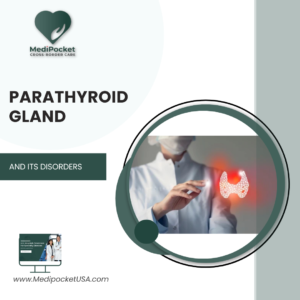In the rapidly evolving world of healthcare, clinical trials serve as the gateway to innovation, hope, and life-saving breakthroughs. Whether it’s a new cancer therapy or a genetic disorder treatment, clinical trials offer access to cutting-edge medicine before it becomes widely available. But for patients and caregivers, the process can seem exhausting, full of unfamiliar terms, phases, and procedures.
This blog offers a deep dive into the world of clinical trials, unpacking their phases, types, monitoring processes, and the rising demand for clinical trial concierge services. We’ll also explore how cross-border platforms like MediPocket USA are making it easier than ever for international patients to access these trials.

Understanding What Is a Clinical Trial and Why It Matters
Clinical trials are structured research studies that evaluate the effectiveness, safety, and side effects of medical treatments, devices, or procedures. They’re essential for bringing new treatments to the market and improving patient outcomes.
Each clinical trial follows strict scientific and ethical standards to protect patient safety and produce reliable data. These trials don’t just benefit future patients — they also give current participants access to breakthrough treatments long before they’re publicly available.
The Four Phases of Clinical Trials: From Discovery to Approval
Phase I – The First Human Test
In Phase I, a small group of healthy volunteers or patients receives the new treatment for the first time. The goal is to determine safety, dosage range, and side effects.
Phase II – Does It Work?
This phase involves more participants and focuses on the treatment’s effectiveness for a specific condition. It continues to assess safety and begins to explore optimal dosing.
Phase III – Large-Scale Testing
Here, the treatment is tested on larger populations across various locations. It’s compared against standard treatments to determine how well it works, while continuing to monitor side effects.
Phase IV – Post-Marketing Surveillance
After the treatment is approved and on the market, Phase IV monitors long-term effects, real-world application, and additional safety concerns.
The four phases of clinical trials ensure that every treatment reaching the public has been thoroughly tested at multiple levels.

Exploring the Different Types of Clinical Trials
Therapeutic vs. Non-Therapeutic Trials
Therapeutic trials aim to treat or improve symptoms in participants, while non-therapeutic ones focus solely on research or prevention.
Randomized Controlled Trials (RCTs)
Considered the gold standard, RCTs randomly assign participants to treatment or placebo groups to eliminate bias and validate results.
Open-label and Double-blind Trials
In open-label trials, both doctors and patients know which treatment is given. In double-blind trials, neither side knows, minimizing bias.
Observational Studies
These studies observe patient outcomes without altering treatments. They’re especially useful in long-term care and rare diseases.
By understanding the types of clinical trials, participants can make informed choices about what suits their medical needs and comfort level.
Clinical Trial Monitoring: Ensuring Ethics and Accuracy
Clinical trial monitoring is essential to maintain the integrity, safety, and scientific value of every study. Monitoring can be internal (conducted by trial sponsors) or external (handled by third-party agencies or regulators).
Monitoring focuses on:
- Patient safety and consent
- Protocol compliance
- Data accuracy and documentation
- Adverse event reporting
With the help of clinical trial concierge services, international patients can access well-monitored, FDA-regulated trials with complete transparency and guidance.

The Rise of Clinical Trial Concierge Services
Personalized Access for Global Patients
The complexity of joining a trial — finding the right one, applying, transferring records, understanding eligibility — can be overwhelming, especially for patients outside the U.S. That’s where clinical trial concierge services come in.
These services offer:
- Trial identification based on condition, location, and eligibility
- Record collection and pre-screening coordination
- Visa, travel, and accommodation planning
- Communication between hospitals, doctors, and families
- Virtual second opinions and follow-up assistance
Such services are revolutionizing how international patients from India, Saudi Arabia, UAE, China, Japan, and beyond participate in U.S.-based trials.
Real Impact: Clinical Trials in Cancer, Rare & Genetic Diseases
Clinical trials have brought hope to patients where standard treatments fall short. For example:
- Cancer: Trials involving CAR-T cell therapy and immunotherapy have extended lives where chemotherapy failed.
- Rare diseases: For disorders like spinal muscular atrophy, gene therapy trials have helped young children survive past infancy.
- Genetic conditions: Trials for CRISPR-based gene editing have shown promise in curing inherited disorders.
By participating in a clinical trial, patients gain access to these groundbreaking therapies early, often years before they reach mainstream care.
How MediPocket USA Helps You Access Clinical Trials
Navigating the U.S. healthcare system is challenging, especially for those outside the country. MediPocket USA bridges that gap through an AI-enabled platform that connects patients to:
- Top U.S. cancer and research hospitals
- Clinical trials matching their diagnosis and stage
- Virtual second opinions from trial investigators
- Full concierge services including travel, visas, and records
Whether you’re a patient in Delhi, Riyadh, Shanghai, or Tokyo, MediPocket ensures that distance doesn’t limit access to innovation.
Ready to Explore Clinical Trials?
If you or a loved one is seeking advanced treatment options, now is the time to consider a clinical trial. MediPocket USA simplifies the process and connects you to the world’s most promising studies.
Reach out today to speak with a clinical trial coordinator and take the first step toward tomorrow’s cure.
Your treatment. Your choice. Your future — reimagined.
Section – All About Clinical Trials
What is a clinical trial?
A clinical trial is a research study involving volunteers to test the safety, efficacy, and side effects of medical treatments, drugs, or procedures.
What are the four phases of clinical trials?
They include Phase I (safety), Phase II (effectiveness), Phase III (comparison with standard care), and Phase IV (post-marketing surveillance).
Who can join a clinical trial?
Eligibility depends on specific criteria such as diagnosis, age, medical history, and previous treatments. A screening process is conducted before enrollment.
Are clinical trials safe?
Yes, clinical trials follow strict ethical guidelines and are monitored closely to protect participants throughout the study.
What types of clinical trials are available?
There are therapeutic trials, preventive trials, diagnostic trials, and observational studies — each designed for a unique research purpose.
What are clinical trial concierge services?
These are support services that assist patients in finding, accessing, and navigating clinical trials, especially helpful for international or complex cases.
Summary
Clinical trials are a powerful part of modern medicine, testing therapies that could redefine outcomes for cancer, rare diseases, and more. From understanding the four phases of clinical trials to exploring the types of clinical trials, patients must be informed and empowered. Thanks to clinical trial concierge services, participation is no longer limited by geography or access.
Platforms like MediPocket USA are unlocking global access, ensuring that the best care in the world is truly within reach for everyone, everywhere.







